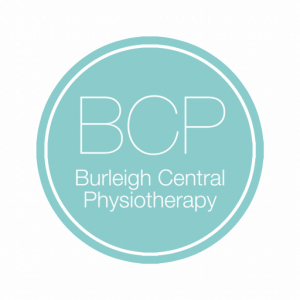Vertigo and Dizziness
What is the difference between dizziness and vertigo?
Dizziness and vertigo have quite similar symptoms, but there are a few key differences, particularly in their causes.
Dizziness is a broad term which refers to feeling light-headed, disoriented, unsteady or giddy. The causes of dizziness can vary, including inner ear (vestibular) disorders, reduced blood flow to the brain, concussion, psychological issues and even neck complaints.
Vertigo is a very specific sensation. Most people would say it’s a feeling like the whole room is spinning, making it extremely difficult to maintain balance. Most times, vertigo is caused due to a problem in the inner ear system.
Both conditions can be triggered by moving quickly, and if this is the case, it’s almost certainly an inner ear issue causing the issue.
Signs of dizziness and vertigo
The signs of dizziness and vertigo can be somewhat similar, however vertigo is a more pronounced sensation that people can identify easily. Because it feels like the entire room you’re in is spinning, it’s quite an obvious symptom. There is a common misconception that vertigo is the same as a fear of heights, and only occurs when someone experiences great heights. Vertigo can actually be triggered by all kinds of movements, such as rolling over in bed or laying down.
Dizziness is a little harder to identify, but most patients report feeling light-headed. You may experience problems with balance, and sometimes even a feeling of nausea. Again, there can be many triggers for dizziness, but that will likely be determined by what’s causing it.
How serious are dizziness and vertigo?
Most of the time, dizziness and vertigo are the result of conditions that aren’t too serious. However, that doesn’t mean your quality of life isn’t impacted severely. Many people who suffer from dizziness or vertigo tend to avoid a lot of activities, such as driving a car, walking, using public transport and other types of physical activity.
People’s work life can also be affected, especially if you work on computers for long periods of time. Not only do computers and bright lights tend to trigger dizziness, but neck issues are also prevalent in sedentary workers and this can be a root cause of dizziness.
How does physiotherapy help with dizziness and vertigo?
Physiotherapy has proven to be successful in treating the conditions associated with dizziness and vertigo. This practice is technically known as vestibular physiotherapy, because it focuses on dizziness and vertigo caused by inner ear issues. Conditions such as benign paroxysmal positional vertigo (BPPV), viral infection of the inner ear (vestibular neuritis) and vestibular migraine all respond well to physiotherapy.
Qualified physiotherapists conduct a comprehensive assessment and can usually establish the cause of your issue. If not, they would refer you to a medical specialist for further testing before recommending any form of treatment.
What's involved in physiotherapy for vertigo?
Vestibular physiotherapy is best carried out by professionals who have studied this form of physio. It’s unlike other types of physiotherapy involving muscles, tendons and ligaments, so not every physiotherapist will be skilled with vestibular physio.
Some of the treatments for dizziness and vertigo include:
Habituation exercises
These exercises involve specific movements that are designed to gently stimulate the symptoms of dizziness. It’s particularly useful after determining the types of movements that cause your dizziness. The idea is to get your vestibular system used to those movements, therefore reducing symptoms of dizziness.
Eye—head coordination exercises
Your physiotherapist may suggest exercises which are designed to improve your focus and therefore reduce the symptoms of dizziness.
Balance and gait exercises
Balancing and gait exercises are designed to challenge the vestibular system, with a view to making it stronger. The idea is to improve your balance and give you more confidence when walking.
Repositioning techniques
Repositioning techniques are designed for a specific inner ear (vestibular) condition known as benign paroxysmal positional vertigo (BPPV). Sufferers of BPPV report experiencing vertigo when lying down or rolling over in bed. Certain repositioning techniques like the Epley manoeuvre can successfully treat BPPV but should only be performed by a physio with specific skills in vestibular rehabilitation.
Dizziness and vertigo treatment in Burleigh - Contact Us Today!
For the best dizziness and vertigo services in Burleigh, look no further than Burleigh Central Physiotherapy. We will tailor an individual treatment plan to help you reach your goals.
We are located at 11/109 West Burleigh Road, Burleigh Heads. Contact our friendly team today to discuss our physiotherapy options for vertigo.

Services
- Physiotherapy
- NDIS Physiotherapist
- Sports Physiotherapy
- Hydrotherapy
- Dry Needling
- Massage
- Gym-based Rehabilitation
- Pilates Classes Gold Coast
- Elderly Mobility Gold Coast
- Vertigo and Dizziness
- School and Sports Programs
- Affiliations
- Gold Coast Physiotherapist
- Physio Gold Coast
- Burleigh Heads Physiotherapist
- Miami Physio
- Physiotherapist Burleigh Waters
- Palm Beach Physio
- Physio Mermaid Waters
- Physio Varsity Lakes
- Physiotherapy Robina
- Physiotherapist Coolangatta
- Bundall Physiotherapy
Contact Us
- 11/109 West Burleigh Rd, Burleigh Heads, Qld 4220.
- 07 5576 0747
- info@burleighcentralphysio.com.au

© 2024. Burleigh Central Physiotherapy. All rights reserved.
© 2021. Burleigh Central Physiotherapy. All rights reserved.

